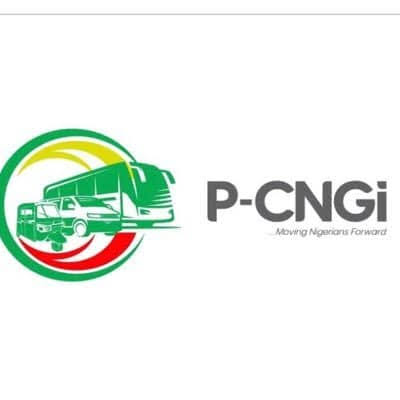FG attracts $791.49m CNG investments in two months – Report
Nigeria’s aggressive push to deepen the adoption of Compressed Natural Gas (CNG) as an alternative transport fuel has recorded another major milestone. According to The PUNCH, the Federal Government attracted over $791.49 million in private sector investments between May and June 2025 alone.
This comes as part of the ongoing Presidential Compressed Natural Gas Initiative (PCNGI), which has mobilised more than $980 million in total investments over the past 12 months, and deployed over 100,000 CNG kits nationwide.
Investor Confidence Soars in Clean Energy Transition
In a document released on Wednesday by the PCNGI Secretariat in Abuja, officials highlighted the sharp spike in investor participation, calling it a reflection of Nigeria’s growing momentum in clean energy and the bankability of the PCNGI model.
“Between May and June 2025 alone, we mobilised over $791.49 million in private sector investments into the CNG ecosystem, covering infrastructure, conversion kits, logistics, and platforms. This surge reflects growing investor confidence in Nigeria’s clean energy transition and the bankability of the PCNGI model,” the secretariat disclosed.
They attributed the investment spike to stronger policy direction, a renewed proof of concept, and a nationwide roll-out strategy that is already delivering tangible results.
Vehicle Conversion and Infrastructure Expansion
The initiative has already seen 1,440 vehicles converted across 20 states. In addition, 807 CNG-powered buses and more than 5,000 tricycles have been procured to support clean energy adoption and curb rising transportation costs.
By 2027, the Federal Government aims to:
-
Convert one million vehicles
-
Train at least 25,000 autogas technicians
-
Deploy 250,000 new bi-fuel vehicles
-
Launch 1,000 auto-gas conversion workshops with the capacity to convert 250,000 vehicles annually
This program is also projected to create over 300,000 indirect jobs.
Fuel Subsidy as an Economic Burden
Describing fuel subsidy as an economic “albatross”, the PCNGI Secretariat criticised the nation’s continued petrol subsidy spending despite having abundant natural gas reserves.
“Nigeria continues to subsidise the importation of over 75 million litres of petrol daily despite producing 1.2 million barrels of crude oil per day. The country is sitting on a wealth of natural gas that must be harnessed for sustainable mobility,” the report noted.
In 2023 alone, N1 trillion was spent on petrol subsidies — a figure the initiative views as unsustainable.
Station and Kit Deployment Milestones
Significant progress has been made in infrastructure deployment:
-
65 mother refuelling stations and 300 new conversion centres have been deployed.
-
260 conversion centres are in advanced stages of development.
-
175 daughter stations are under construction, with 30 already operational.
The initiative is being driven through collaboration with state governments, private sector investors, and financing partners such as NIPCO Gas and the Federal Ministry of Finance.
Procurement and Logistics Breakdown
A detailed procurement breakdown revealed:
-
Of the 23,845 CNG kits ordered in 2023, 17,346 have been received and 16,672 already deployed.
-
In 2024, 27,100 kits and 53,000 cylinders are in supplier warehouses awaiting delivery.
-
The 2025 target includes 125,000 vehicle conversions.
On vehicle procurement:
-
5,213 tricycles and 531 petrol-to-CNG buses were ordered, with 391 buses and all tricycles already received.
-
Additionally, 40 electric buses have been delivered to enhance low-emission mobility.
National Reach and Workforce Development
The PCNGI is currently active in 20 states, with 11 more states expected to join within the next six to nine months. The initiative has already trained over 5,500 conversion technicians, and launched more than five consumer-focused incentive programmes, including:
-
Fare reduction schemes
-
Refuelling on-lend models
-
Consumer subsidy plans
“The goal is not only cleaner, cheaper fuel but also economic empowerment,” the secretariat emphasised.
Economic and Environmental Impact Outlook
If fully implemented, the PCNGI projects the following:
-
A 57% reduction in CO₂ emissions
-
N500 billion in cumulative fuel cost savings
However, the initiative flagged infrastructure limitations and gas availability as ongoing challenges. It stressed the need for proactive planning, strict quality control, technology-based monitoring, and effective enforcement to avoid safety incidents.
“Only one incident during adoption is too much,” the secretariat warned. “Safeguards must be guided by strict quality control, technology-based monitoring, and effective enforcement.”
Positioning Nigeria Globally in CNG Adoption
Globally, CNG vehicle adoption is led by China, Iran, and India. Nigeria aims to join this group by using CNG to transform mass transit, improve inter-city and intra-city transportation, and mitigate the impact of fuel deregulation.
The Federal Government has also developed standards for refuelling stations, engine compatibility, and vehicle conversions, in collaboration with the Standards Organisation of Nigeria. Meanwhile, a new Nigeria Gas Vehicle Monitoring System is under development to ensure regulatory oversight and safety compliance.














Post Comment